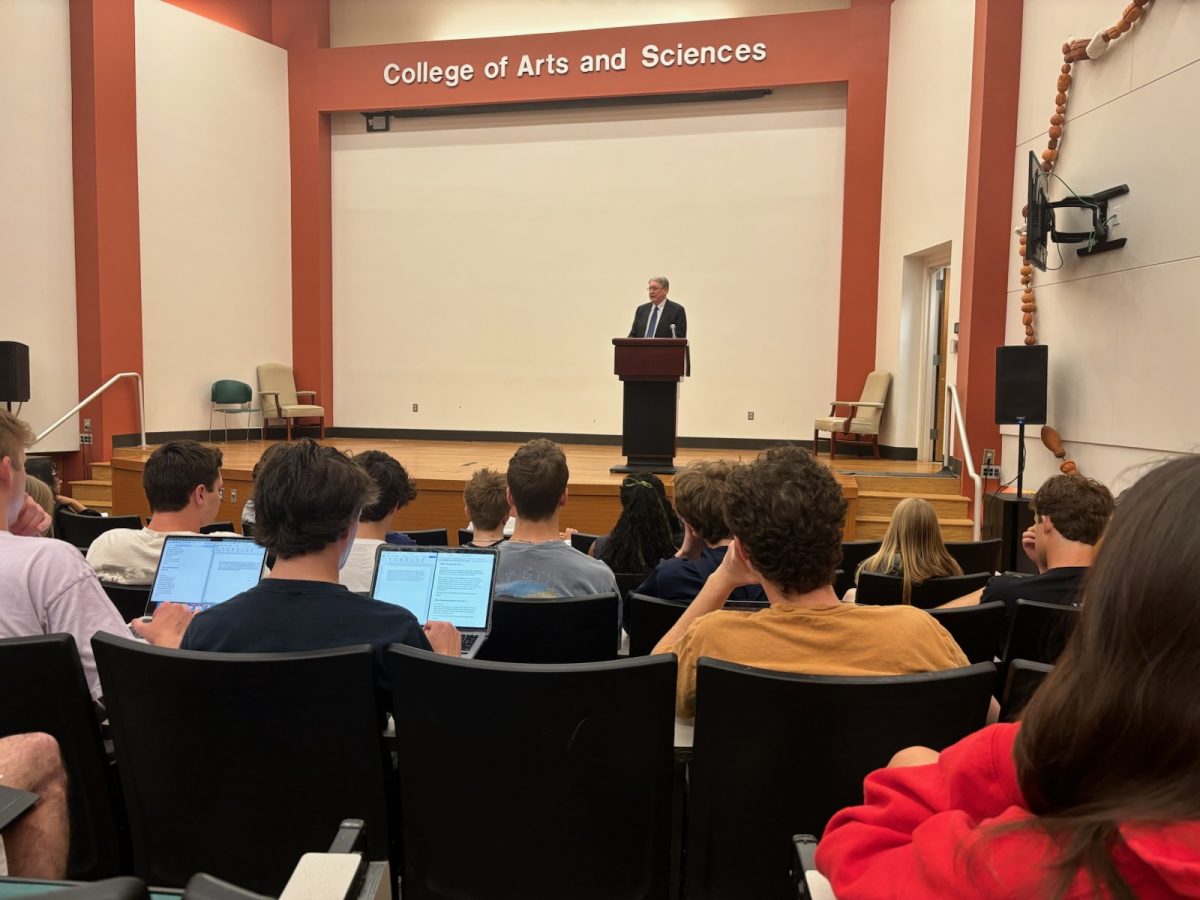Dr. Robert Bernasconi, Edwin Erle Sparks’s professor of philosophy and African American studies at Pennsylvania State University, delivered a lecture at GC detailing higher education’s participation in slavery across the 19th century. The lecture was titled “Philosophy’s Failure in the Face of Slavery,” wherein more specifically, Bernasconi harshly critiqued the education of moral philosophy in American academic institutions.
One of his critiques laid in the desperation of wealth across the nation and the acceptance of Southern political standards in Northern academia and how profitability from Southern plantations left a large Southern student population available for Northern universities to pursue.
“The wealth of the country was from the South, but the universities were in the Northeast,” Bernasconi said. “And so, in order to attract wealthy students to these prestigious universities in the Northeast, they had to make sure they were not coming out against slavery.”
This resulted in a simplistic method of teaching moral philosophy in United States academia: It comprised two major textbooks that were practically interchangeable in their utility. Unfortunately, the outcome of these textbooks directed the “brightest minds of America” to be reluctant to challenge the largest ethical dispute in the 19th century: slavery.
“The Northern universities and the Southern universities used the same moral textbooks [for philosophy],” Bernasconi said. “One of the striking things is that there were only two textbooks of moral philosophy that dominated the teaching of morality in colleges and universities in the United States from the period of 1790 to 1865 — only two.”
Bernasconi goes on to link this dilemma to a larger problem in academic philosophy itself: that many philosophers do not correlate moral philosophy to political philosophy. He argues that it may seem irrelevant for philosophers to interpret a concept with moral intent without executing such beliefs to the same standard, especially through the medium of political institutions.
“This is very much part of the failure of moral philosophy to address slavery,” Bernasconi said. “It becomes a moral issue when the political system is presupposed.”
Dr. James Winchester, a philosophy professor at GC, agrees with the sentiment expressed by Bernasconi but implies that challenges across the modern day are not excused. As Winchester argues, philosophical critiques of political dilemmas are a necessity for society to progress.
“It is very telling to see how philosophers found all sorts of ways in the 19th century to justify slavery because they had a financial interest,” Winchester said. “I think today, the challenge is that we need to use philosophy in a productive way so that we can call into question the kinds of things that are deserving of critique, like racism, sexism, homophobia.”
By bringing up these modern-day issues in relation to historical difficulties, Winchester alludes to intersectionality in moral philosophy: the idea that forms of oppression are historically stemmed and interconnected with one another. This use of intersectionality gives way for obvious immoral ideologies, such as slavery, as described by Bernasconi in his lecture, to evolve and transcribe through different mediums.
Diana Cazacu, a sophomore art and philosophy major, considers this attribute of intersectionality to be a direct component of Bernasconi’s arguments. It is also how Cazacu found interest in the event: by looking through philosophical intersectionality from a modern viewpoint and with modern concerns in mind.
“Immediately upon reading the talk, I was like, ‘Woah, this is so cool,’” Cazacu said. “This is mainly because I’m fascinated with intersectionality in philosophy, especially how philosophy in our modern days can fail minorities.”
Nonetheless, Bernasconi’s lecture on “Philosophy’s Failure in the Face of Slavery” provided a sharp critical analysis of American philosophy during the 19th century. Even as his arguments follow a historical narrative with many examples following suit, the implication of moral philosophy to the modern day was surely intended by Bernasconi to inspire students to tackle complex and unethical political institutions abroad.


